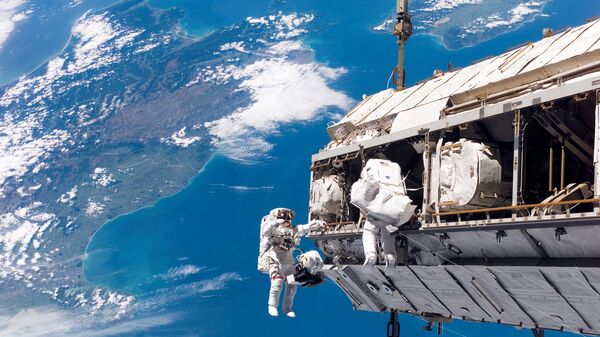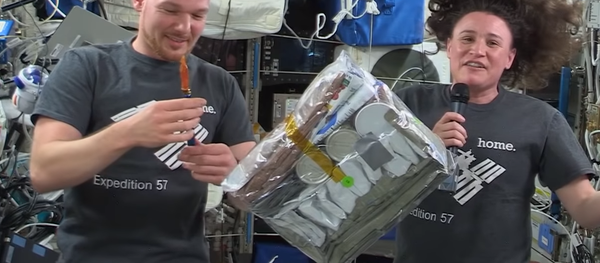JPL-NASA scientists have identified a highly unwelcome guest thriving on board the International Space station – strains of Enterobacter, and what’s most worrying is that these bacteria are highly resistant to antibiotics, a research paper published in the journal BMC Microbiology has it.
For the time being, the strains of Enterobacter found on the ISS have luckily been found to be not pathogenic to humans, but the mere fact of them having been spotted on the station, in the unique conditions of microgravity, at least a tad of space radiation and intensely increased carbon dioxide levels, could carry worrisome implications.
Meanwhile, human bodies have long been known to be teeming with healthy and beneficial microbes, which cannot and should not be totally eradicated since they are an effective firewall against those which pose danger.
It took three years to describe and characterise the genomes of the strains collected back in 2015. The ISS bacterial strains have notably been identified to be similar to three types found recently on Earth, potentially causing disease in newly-born children and patients with a compromised immune system, according to microbiologist Kasthuri Venkateswaran.
READ MORE: ISS Expedition Celebrates 20th Anniversary With Q&A (VIDEO)
No imminent danger with regard to the astronauts has been revealed, since no Enterobacter-related medical conditions have been registered in orbit since the samples were collected. However, the scientists asserted that there could potentially be a hazard, since they compared their antibiotic resistance to the three clinical strains from Earth and found that they are entirely unaffected by such wide-spread antibiotics as cefazolin, cefoxitin, oxacillin, penicillin and rifampin and some others. Computer modelling suggested there is 79 percent probability that they will evolve into a human pathogen, given certain conditions.
"Whether or not an opportunistic pathogen like E. bugandensis causes disease and how much of a threat it is, depends on a variety of factors, including environmental ones," Venkateswaran noted, adding that it is no less crucial to depict how various spacecraft-related conditions and factors may affect pathogenicity and virulence in the long run.





